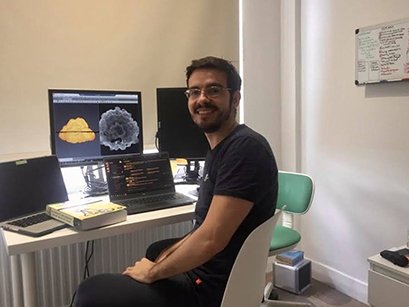By Leonardo Bertini (ESR at Natural History Museum London)
In academia, we often do not associate the term ‘resilience’ with one’s individual ability to cope with challenging situations. Interestingly, if you ask an environmental scientist about the meaning of the term ‘resilience’, their reply will most likely be in the lines of ‘the ability of the living components of ecosystems to endure and adapt to a changing environment’. In today’s post, I approach resilience from a researcher’s perspective, sharing my personal experience following the easing of lockdown measures and resuming activities at the Natural History Museum in London.
Pre-pandemic, we were all used to our daily commutes into our research institutes, sharing our lunch times with our colleagues and having the ease of access to all collections and labs. So when lockdown was announced, suddenly all of that academic freedom we were all so used to was quickly taken away. We all had to learn how to suddenly and quickly become ‘resilient’ to our ‘new conditions’, managing to continue our research with all these new restrictions in place!
Working from home became our new normal. From turning our dining tables in office tables to zoom calls with our collaborators and colleagues, all these new changes were part of us academics becoming more resilient. Personally, after many months working from home, I felt a sense of loss and was longing to return to the NHM. I missed looking up at the whale in Hintze Hall every morning, having lunch at the farmer’s market with colleagues and seeing my supervisors to discuss my research most days.
When it was announced that I was given clearance to visit the NHM collections, I was delighted! I was so happy to have a purposely driven commute to the NHM, after spending the last few months working from home. It is just one of those things that you start to realize how much you miss only after you have been deprived of that very same thing. I never thought I would be happy to get on the tube during rush hour to get to work!
For sure, the lockdown has affected everyone’s work to some extent, but I like to think of it in a positive way and, if anything, I would say we should see it as a time to reflect on our old habits and how much of the lifestyle we used to have was taken for granted. I would also like to see it as evidence as to how resilient we all have been during these difficult times, and that so many of us have been able to power on and find solutions to obstacles in order to continue our research, something we should all be very proud of!







